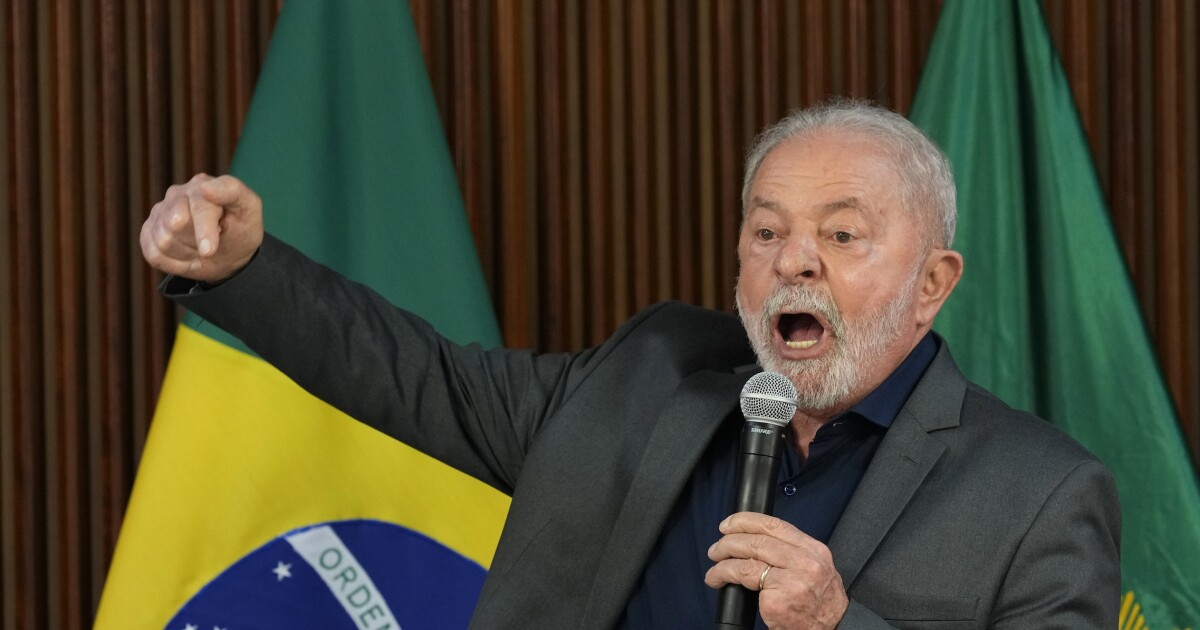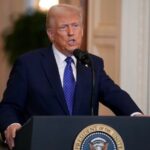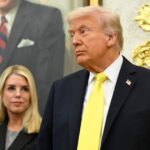

A riotous far-right assault on Brazil‘s government institutions has galvanized a new competition for the affections of Brazilian President Luiz Inacio Lula Da Silva.
“Lula is a grand prize in international politics,” Center for Strategic and International Studies senior fellow Lauri Tahtinen told the Washington Examiner. “Everybody wants the weight of Lula behind them.”
The extent of that appeal could be discerned in capitals around the world, with White House national security adviser Jake Sullivan hastening to emphasize that “the United States condemns any effort to undermine democracy in Brazil.” Even abject enemies such as Ukraine and Russia adopted a similar posture on Monday, while Chinese officials endorsed “the measures taken by the Brazilian government to calm down the situation” and expressed their confidence in Lula.
“This might be Lula’s strongest moment — or at least are a very strong moment for Lula as he begins his presidency,” the Heritage Foundation’s Mateo Haydar said. “You have basically a broad range of governments, notably including the United States, rallying squarely behind him.”
US ‘STANDING BY’ TO ASSIST BRAZILIAN INVESTIGATION OF BOLSONARO ROLE IN RIOT
The diversity of that coalition points to the complexity of the diplomatic situation that presents itself to President Joe Biden. Then-President Donald Trump designated Brazil as a major non-NATO ally in 2019 at the height of U.S. relations with then-Brazilian President Jair Bolsonaro’s administration, but the right-wing Brazilian leader followed Trump’s example in denying the results of his electoral defeat to Lula, a leftist leader with a history of cooperation with Russia and China.
“Brazil is China’s comprehensive strategic partner,” Chinese Foreign Ministry spokesman Wang Wenbin said Monday. “We believe that under the leadership of President Lula da Silva, Brazil will continue to enjoy stability and social harmony.”
Chinese officials are optimistic about their prospects with Brazil due to past experience with Lula, who served as president from 2003 to 2011. Lula joined with Russia, China, and India to form a new bloc of “agents of change in making global governance both more transparent and democratic,” as Lula described the emerging bloc, in a pointed criticism of U.S. economic and military power.
“We must forge a more representative and transparent system of global governance that can both inspire unity of purpose and revitalize the collective will to seek consensual solutions,” Lula wrote in 2010. “In this journey toward a new world, the BRIC countries are committed to working together to fulfill our responsibilities.”
The intervening years have seen China and Russia use similar rhetoric to justify a range of bellicose and aggressive policies — perhaps the most dramatic example appeared during the Beijing Olympics in February when Chinese General Secretary Xi Jinping and Russian President Vladimir Putin called for a “transformation of the global governance architecture and world order” just weeks before Putin launched his campaign to overthrow the Ukrainian government. India, however, has developed a stronger relationship with the United States, reinforced by a bloody clash of Indian and Chinese forces on a disputed border in 2020.
Lula presides once more over the world’s fourth-largest democracy, but he signaled throughout the 2022 campaign that he will not be an easy partner for the U.S. and other Western countries. He abjured “a new Cold War involving the United States, China or Russia” throughout the 2022 campaign and rebuked Ukrainian President Volodymyr Zelensky and Biden.
“I see the President of Ukraine, speaking on television, being applauded. … This guy is as responsible as Putin for the war. Because in the war, there’s not just one person guilty,” he told Time magazine. “The United States has a lot of political clout. And Biden could have avoided [the war], not incited it.”
That attitude is a rarity these days among White House guests, particularly one whose brand on the world stage could overlap with Biden, as the presidents who defeated Trump and the “Trump of the tropics,” Bolsonaro, and then faced a violent protest in their respective capitals.
“I think they both see themselves as these old men who have seen a lot of politics, and they both managed to take down former presidents who they saw as a threat to the constitutions of their country and internal order in their countries,” Tahtinen told the Washington Examiner. “My sense is that that parallel is pretty strong amongst the Biden people.”
Secretary of State Antony Blinken’s team struck an enthusiastic tone on Lula this week.
“It’s a pivotal time in terms of U.S.-Brazilian relations with the new government, with this government eager to work with President Lula and his team,” State Department spokesman Ned Price said. “There is a broad range of work that we want to accomplish, that we need to accomplish with our Brazilian partners.”
Yet Lula’s philosophical outlook could allow for an improvement in U.S.-Brazil relations that stops short of paying Biden dividends with respect to the U.S. competition with China or Russia’s invasion of Ukraine.
“Lula sees no discrepancy, or no contradiction, between engaging the democracies of the world and opening the door to China in strategic sectors and to closer relations with Putin,” said Haydar, the Heritage Foundation analyst. “There’s huge concerns in general right now [about] the presence of China in Brazil. … There’s no prospect that will improve with Lula. It will only get worse because, again, of his geopolitical position and because of his record of being basically the president who opened the door to China.”
Lula’s impending visit to the White House could be an early test of Biden’s ability to embrace him “under the banner of democratic leaders who have managed to bring down dangerous populists,” as Tahtinen put it.
CLICK HERE TO READ MORE FROM THE WASHINGTON EXAMINER
“He definitely doesn’t want it to go to a place where Lula then decides to start performing a balancing act on the global stage from the White House,” the CSIS analyst continued. “It’s also … one of these few chances that we’ll get, also, to bring Brazil on board. … If a country could be at the same time wholeheartedly of the Global South but also of ‘the West,’ and if Brazil were that country, it could be a tremendous win for the United States and its allies, as a whole, and I believe it would also in the long term be a win for Brazil. But it’s not the easiest journey to get there.”






